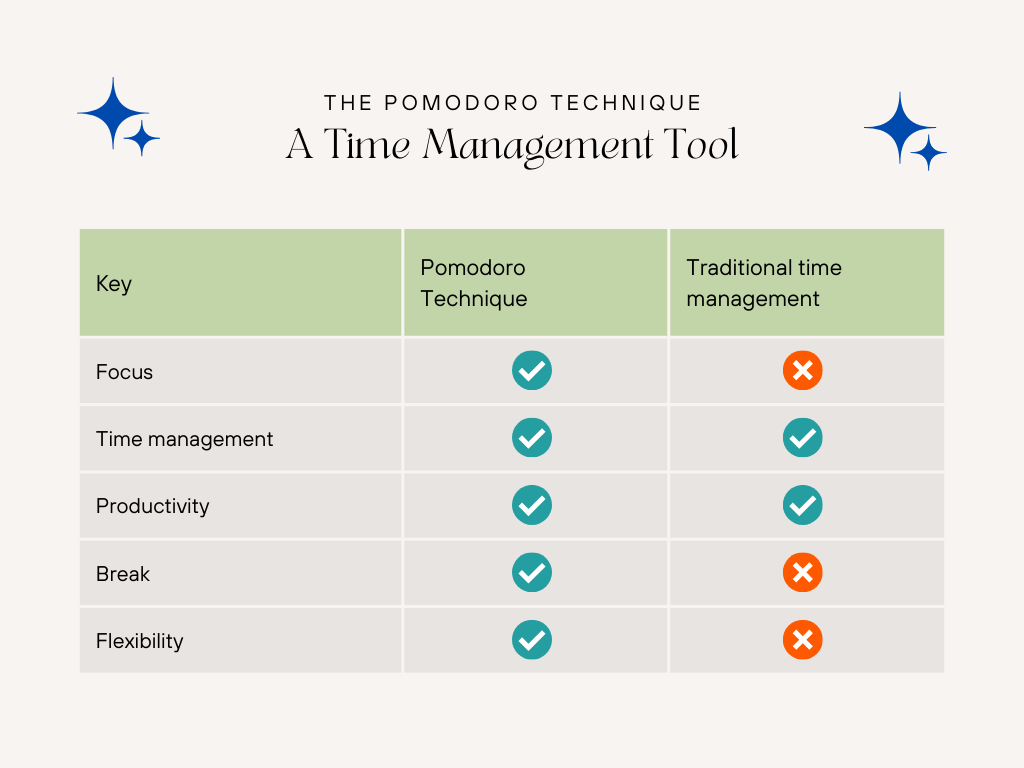
Why Time Management Is Your Secret to Success.
Have you ever felt like there aren’t enough hours in the day to get everything done? You’re not alone! As a student, managing your time can feel like juggling a million tasks at once—assignments, study sessions, social life, family, hobbies... the list goes on.
Effective time management isn’t just about getting through your to-do list; it’s about finding balance and reducing stress so you can truly enjoy your studies and your personal life.
In this post, you’ll learn practical, easy-to-follow tips for managing your time. These tips aim to enhance the organization and productivity of your study life without overwhelming you. So, let’s dive in and start making time work for you!

1. Set clear goals: Start with the end in mind.
Before diving into time management techniques, it’s essential to set goals. Planning your time effectively is much easier when you know what you’re aiming for. Your goals should be short-term (like completing this week’s assignments) and long-term (like achieving a specific grade by the end of the semester).
Tip:
Write down your goals and keep them visible—this could be a sticky note on your desk or a note on your phone. Having goals provides a clear direction and makes prioritizing tasks easier.
2. Prioritize tasks: What’s Important vs. What’s Urgent.
Once your goals are clear, the next step is to prioritize. Not every task holds the same level of urgency—some need to be tackled immediately, while others can be set aside for later. Here’s where the Eisenhower Matrix can help: a simple tool that allows you to sort tasks based on urgency and importance.
- Important & Urgent: These tasks need immediate attention (e.g., an assignment due tomorrow).
- Necessary but Not Urgent: Tasks like studying for exams are essential but can be scheduled.
- Urgent but Not Important: Tasks like responding to non-urgent messages or checking social media.
- Neither urgent nor essential: low-priority activities you can avoid or do in your free time.
Example:
If you have a big exam in two weeks, that task will fall under “Important but Not Urgent,” You should start preparing now, even though it’s not immediately due.
3. Create a Study Schedule: Structure Brings Freedom

Having a consistent schedule is one of the most effective ways to manage time as a student. Instead of cramming at the last minute, plan weekly study blocks to stay on track without stress. A successful study schedule includes time for classes, studying, breaks, and personal time.
How to Create a Study Schedule:
- Pick a Tool: You can use a paper planner, a digital calendar, or an app. Whatever works best for you!
- Block Out Fixed Commitments: First, schedule your classes, work shifts, and other non-negotiable commitments.
- Add Study Blocks: Schedule time for specific subjects or assignments.
- Schedule Breaks: Taking regular breaks keeps your mind fresh and boosts productivity.
- Leave Flex Time: Reserve an hour or two as a buffer if something unexpected happens.
Following a study schedule makes it more likely that you will stay on top of your work, avoid last-minute stress, and enjoy your free time guilt-free.
4. Use the Pomodoro Technique: Work Smarter, Not Harder.

The Pomodoro Technique is a practical tool for staying focused and avoiding burnout. Here’s how it works:
- Set a Timer for 25 Minutes: Choose one task to focus on.
- Work Until the Timer Rings: Dedicate yourself entirely to the task.
- Take a 5-Minute Break: Stretch, grab a snack, or take a few deep breaths.
- Repeat: After four “Pomodoros,” take a longer break of 15-30 minutes.
Why It Works: The Pomodoro Technique keeps you focused by breaking down your work into manageable chunks, making it easier to concentrate. It’s helpful in reading, reviewing notes, or practicing problems.
5. Limit Distractions: Set Boundaries for Study Time

Staying focused can be challenging with social media, texts, and endless notifications. Limiting distractions and setting study time boundaries are crucial to improving your time management.
Tips to Limit Distractions:
- Turn Off Notifications: Use “Do Not Disturb” mode on your devices.
- Designate a Study Space: Find a quiet spot where you won’t be interrupted.
- Use productivity apps: Forest or Focus@Will can help keep distractions at bay.
- Let Others Know You’re Studying: If you live with others, let them know when you need quiet time.
You’re setting yourself up for a more focused and productive study session by minimizing distractions.
6. Break down large projects into smaller tasks.
Large projects can feel overwhelming if you look at them as a whole. Try breaking them into smaller, manageable steps. This way, you can make steady progress without feeling intimidated.
How to Break Down Projects:
- Identify the Steps: List all the steps needed to complete the project, such as research, outlining, writing, and editing.
- Set Mini-Deadlines: Assign a deadline to each step to stay on track.
- Focus on One Step at a Time: The project becomes less overwhelming by tackling each step individually.
For example, if you’re writing a research paper, divide the task into smaller sections, such as finding sources, creating an outline, and drafting each section. This approach helps you keep momentum and reduces last-minute stress.
7. Take Care of Yourself: Balance Is Key

Effective time management isn’t just about studying. It’s about balancing study with self-care. You'll naturally be more productive and focused when healthy, well-rested, and energized.
Tips for self-care as a student:
- Sleep: Aim for at least 7–8 hours of quality sleep each night.
- Exercise: Even a short daily walk can boost focus and mood.
- Eat Well: Avoid consuming caffeine and junk food; instead, fuel your brain with nutritious meals.
- Social Time: Make time for friends and family to maintain a positive outlook.
Caring for yourself makes you better equipped to manage your time and tackle academic challenges.
8. Avoid common time management mistakes.
Some common time management mistakes can trip you up even with the best intentions. Here are a few to watch out for:
a. Procrastination
Putting things off is tempting but often leads to unnecessary stress. If procrastination is a habit, try breaking tasks into smaller steps and setting mini-deadlines. Over time, this will help reduce the urge to delay work.
b. Overloading Your Schedule
Taking on too many commitments is easy, but this can quickly lead to burnout. Be honest about your limits and say “no” when necessary.
c. Failing to set priorities.
Without a clear sense of priority, getting caught up in less important tasks is easy. Always ask yourself, “Is this task urgent or important?” to keep yourself focused on what truly matters.
9. Use tools to stay organized.

There are plenty of tools available to make time management more effortless. Here are some favorites among students:
- Google Calendar: Perfect for scheduling classes, study sessions, and deadlines.
- Trello or Asana: Great for tracking larger projects and breaking them down into smaller steps.
- Notion: A flexible tool for organizing notes, schedules, and tasks.
- Forest or Focus@Will: These devices help you stay focused during study sessions by limiting phone usage or providing ambient study music.
These tools can streamline your organization and ensure nothing falls through the cracks.
10. Practice makes perfect: time management is a skill.

Remember, time management isn’t something you master overnight. It’s a skill you develop with practice. Start by implementing one or two of these tips and build from there. Over time, you’ll find your best methods and refine your routine.
Final Words:
Time management can feel daunting, but it's manageable with the right tools and strategies. By setting goals, prioritizing tasks, creating a schedule, and taking care of yourself, you set a strong foundation for academic and personal success. Remember, you don’t have to do everything at once.
Small steps add up to significant progress!
So try one or two of these tips today and see how they make a difference.
Whether it’s setting a small goal, creating a study schedule, or practicing the Pomodoro Technique, every little bit helps. Here’s to more productive, less stressful, and ultimately successful days ahead!
Study Tips Students Study Motivation Time Management




